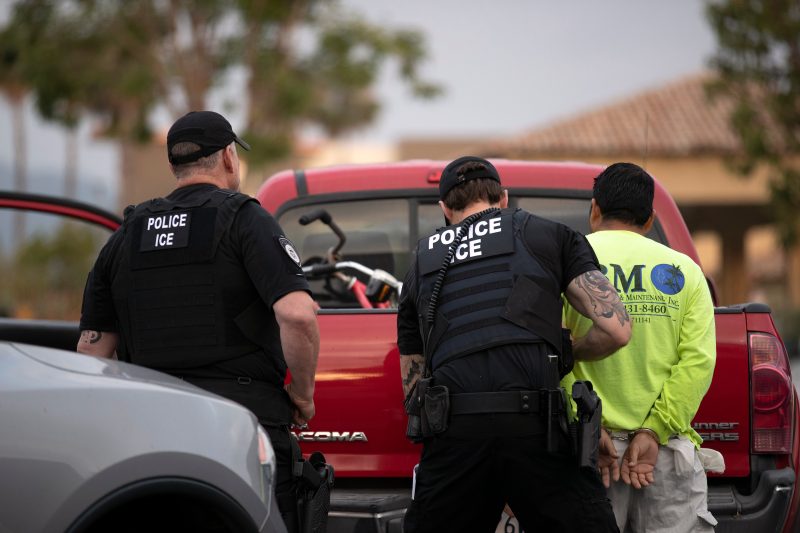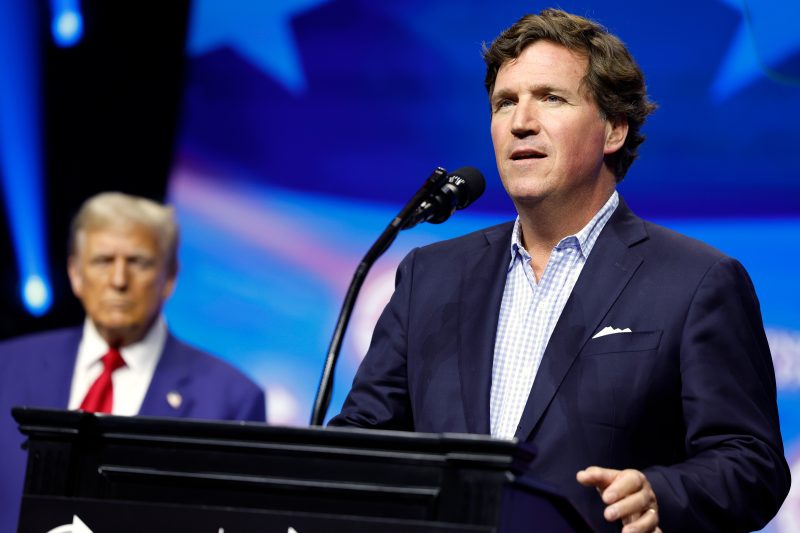
Report says ICE detention often fails to meet government standards
As Republican candidates regularly turn any question into a hit on immigration, the presidential campaigns are overlooking the disturbing conditions migrants face in detention facilities that fail to meet government standards.
Because of those deficiencies, a new federal watchdog report says U.S. Immigration and Customs Enforcement (ICE) is hindered in its “ability to maintain a safe and secure environment for staff and detainees.”
Although unannounced inspections by the Department of Homeland Security’s Office of Inspector General found ICE “generally complied” with established standards, the office found troubling conditions and practices in a substantial number of institutions. The inspections of 17 facilities, out of about 110, were conducted from fiscal 2020 to 2023.
“Our analysis indicates that regardless of time, location, detainee population, and facility type, ICE and facility staff have struggled to comply with aspects of detention standards,” the inspector general’s office wrote. It added, “We found repeated instances of noncompliance in the areas of environmental and safety conditions, [special management units], staff-detainee communication, medical specialty and chronic care, medical staffing shortages, and the grievance system.”
Among the inspector general’s findings:
● Fifty-nine percent of the facilities did not fully comply with “medical care standards, like dental and chronic care, and medical staffing.” Staffing shortages threatened “timely sick call responses, medication refills, and the level of care detainees received for suicide watch, dental, optometry, and chronic care.”
● Seventy-one percent of the facilities “did not consistently provide required care for detainees in segregation,” including access to recreation, laundry and commissary services.
● Eighty-two percent were deficient in their communication practices, including delayed responses to inmates, responses in languages they don’t understand, missing requests in detainees’ files and inconsistent visitation schedules. Furthermore, more than three-quarters “did not comply with all grievance system standards,” like timely responses to grievances.
● Thirty-five percent violated environmental health and safety standards, including by breaking sanitation protocols, or by having broken toilets and sinks, mold and leaking water.
Inspector General Joseph V. Cuffari sent the memo on the report to Homeland Security onSept. 24. Unrelated to the detention facilities findings, a report last week by an independent panel of inspectors general to President Joe Biden urged him to discipline Cuffari for providing misleading information to the Senate during his nomination process and other misconduct. He previously called the investigation unfounded.
John Gihon, chairman of the American Immigration Lawyers Association national ICE liaison committee, said the organization “is extremely disappointed” by the report’s findings, “but not really surprised. … All these sort of things seem to be a systematic problem across the United States.”
About 37,400 migrants are being held in more than 100 facilities, including those owned by the federal government, private prisons, and state and local facilities. Gihon said the problems are long-standing, no matter who operates the facilities or which political party is in control.
“It seems to be across the board,” he said. “This has been a problem for years.”
Gihon added, however, “that we find more problems and more systemic issues within the private prison system” than in ICE facilities.
In addition to having problems affecting detainees and staff, eight of the 17 inspected facilities paid a total of $160 million from 2020 to 2023 for space they don’t use, because ICE guarantees minimum payments to private contractors and state and local governments to house inmates.
“Although ICE must acquire and maintain enough bed space to satisfy demand for population surges and must adjust for health and safety requirements,” the inspector general reported, “it must also strive for balance to avoid wasting funds on empty beds.”
Although the report covers the three fiscal years beginning Oct. 1, 2019, more than 15 months before Republican President Donald Trump left office, Rep. Mark Green (R-Tenn.), chairman of the House Homeland Security Committee, blamed Democrats in the White House for the empty beds and for not requesting more space, saying they have “consistently requested fewer ICE detention beds than the Trump administration, and then failed to use all the ICE beds funded by Congress.”
“This represents a massive waste of taxpayer resources,” Green added by email, “and a fundamental failure by the Biden-Harris administration to enforce the long-standing immigration laws they swore to uphold.” The Federation for American Immigration Reform (FAIR), which favors stronger immigration restrictions, agreed, adding, “in FAIR’s view, the objective should be to keep aliens in detention facilities for as little time as possible by quickly deporting those who have no legal right to stay here.”
With a more compassionate approach, Rep. Bennie G. Thompson (Miss.), the committee’s top Democrat, focused on the difficult plight migrants and employees face. “After the Office of the Inspector General inspected over a dozen ICE facilities in recent years, it’s clear ICE must do more to ensure its facilities are fully following detention standards,” he said. “We need to make sure migrants in our care are treated humanely, and the safety of both detainees and staff is prioritized.”
The inspector general’s office said ICE management chose to forgo a formal response to the report, which made no recommendations.
In a statement to The Post, ICE spokesperson Jeff Carter said, “ICE remains committed to enhancing civil detention operations to ensure noncitizens are treated humanely, protected from harm, provided appropriate medical and mental health care, and receive the rights and protections to which they are entitled.”



